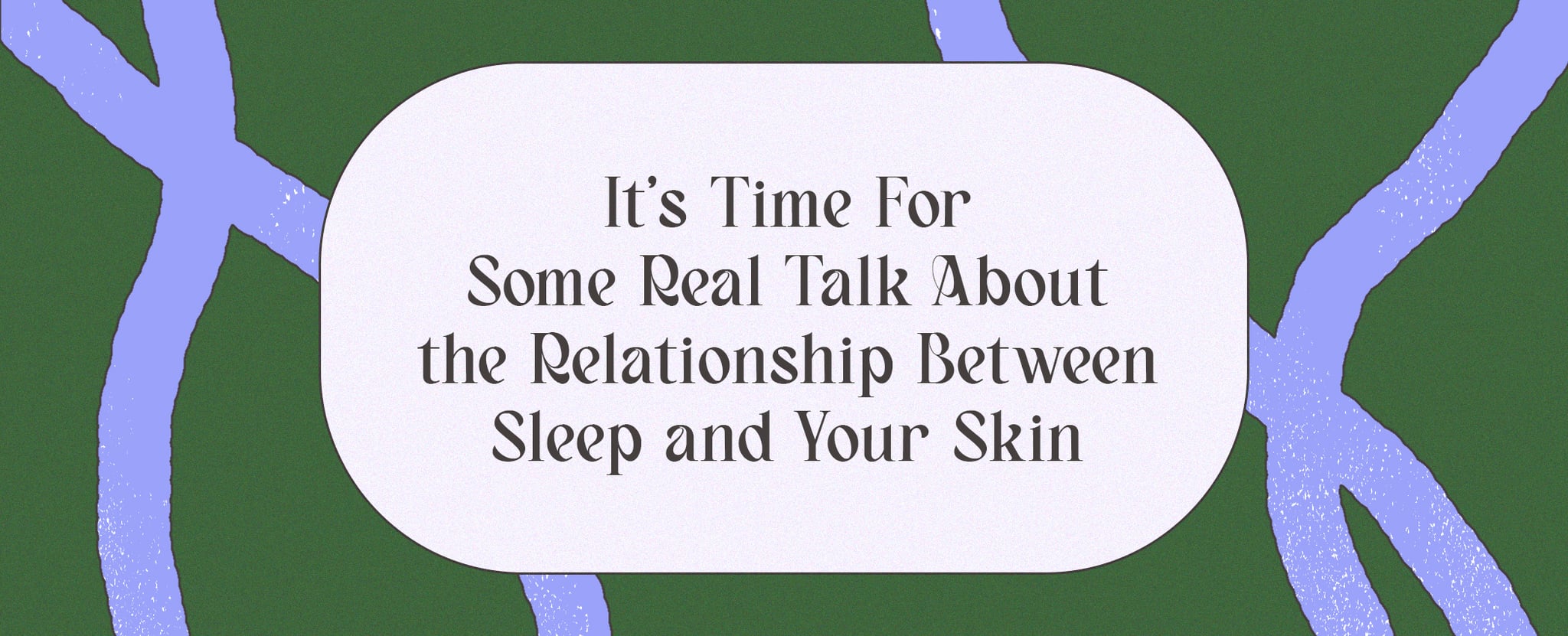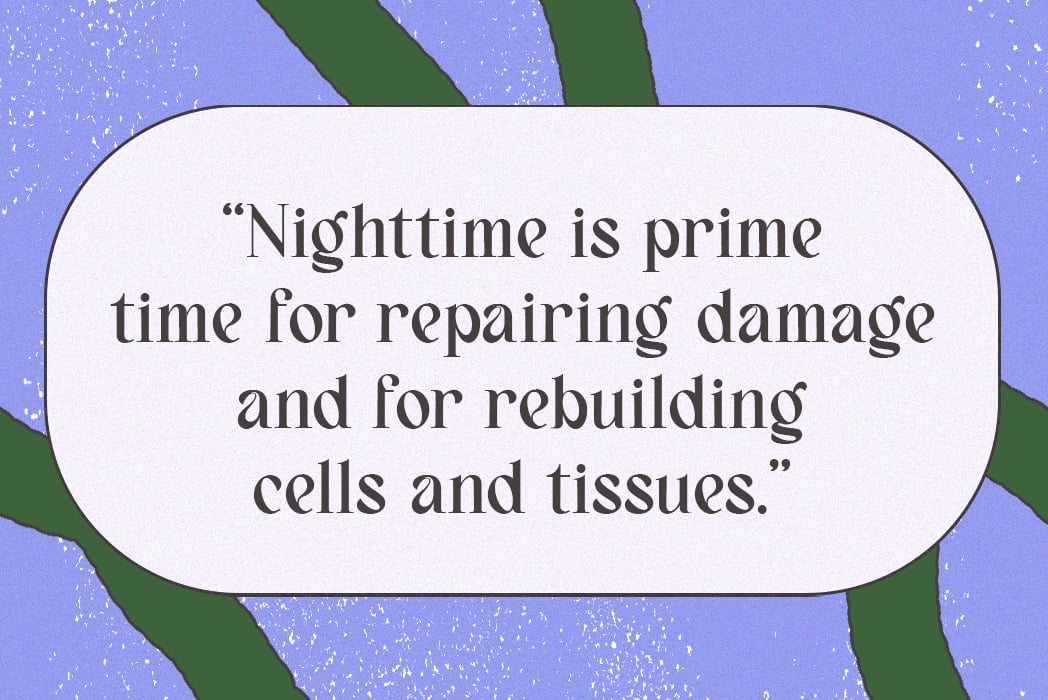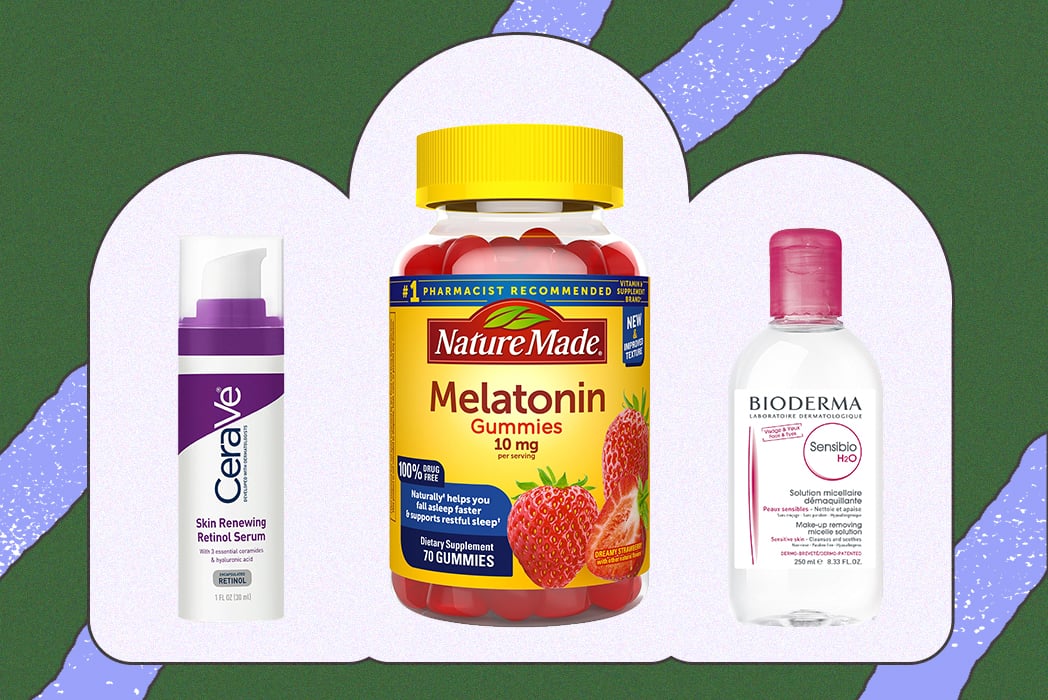
CVS How Sleep Is Affecting Your Skin-Care Routine
It’s Time For Some Real Talk About the Relationship Between Sleep and Your Skin

Why do we need sleep? This is a question most insomniacs probably ask themselves as they lie awake at 2 a.m. But you don't need a sleep specialist to tell you how important it is for your health. Those seven to nine hours are essential for the mind and body; without it, things might get a little fuzzy. But sleep doesn't just help support our cognitive functions, it also does a lot of heavy lifting for our skin.
Turns out, we can get used to chronic sleep deprivation, so much so that eventually we might get really good at ignoring those negative side effects, but brushing off sleep deficiency gets a whole lot harder when it begins to show on your face. You may think that those five hours of interrupted sleep are working for you until the dark circles and early wrinkles begin to show.
Getting sleep isn't overrated, and to prove it, we consulted board-certified dermatologist at Marmur MedicalRachel Maiman, MD, on everything you need to know about the relationship between sleep and your skin.
How Sleep Affects Skin
To put it simply, your skin really wants you to close out of TikTok, turn off the TV, and go to sleep. Not to mention the fact that it needs it. "The skin has its own circadian clock," Dr. Maiman said. "Different skin processes occur at different times according to this internal schedule. Nighttime is prime time for repairing damage and for rebuilding cells and tissues." But what happens when you aren't getting that suggested seven to nine hours?
Inflammation
"The key reason that sleep deprivation wreaks havoc on the skin is because of [an] elevation of the stress hormone cortisol," Dr. Maiman said. "Lack of sleep is a physiologic stress on the body, so the body appropriately responds by piping out more stress hormones." To be clear, your body can benefit from a release of cortisol, especially in crisis situations, but your skin can sometimes suffer. Too much cortisol can trigger inflammation, which can make the skin more prone to things like acne and rosacea.
Loss of Collagen and Elastin
"Inflammatory mediators resulting from cortisol secretion can also increase the activity of enzymes called matrix metalloproteinases, which degrades collagen and elastin and suppresses the skin's inherent ability to synthesize new collagen and elastin to compensate," Dr. Maiman said. Proteins like collagen and elastin are crucial to maintaining a healthy youthful glow; the more our body is deprived of these, the more likely skin might appear depleted and sagging.

Dryness
The skin barrier, which is your skin's first defense against external stressors and damage, is largely supported by a good night's sleep. Your skin barrier doesn't just keep the bad stuff out, but it also keeps the good — think, moisture retention — in. Without sleep, the barrier can lose its functional power and can lead to increased dryness.
Puffy Eyes and Dark Circles
According to Dr. Maiman, research has shown that even one night of poor sleep can result in droopy eyelids. "[W]hen sleep is insufficient, tissue oxygen levels drop and so vessel dilation is an attempt to compensate," said Dr. Maiman. "This dilation not only underlies the bluish hue that causes many dark circles, but also equates to fluid retention and is why eyes appear puffy."
Nighttime Habits to Help Improve Your Quality of Sleep
The short and easy answer is to get more sleep, but there are some small tweaks you can make to your nighttime routine that might improve your quality of sleep — and improve your skin while you snooze.
Sleep Aid Supplements
You may call yourself a night owl, but you might just be in need of some melatonin. Melatonin is a natural hormone that helps regulate our body's natural sleep-wake cycle, but it's also a popular sleep aid for people suffering from interrupted sleep or insomnia. Melatonin supplements are not usually recommended for long-term use, but can help support a regulated bedtime schedule.

Get More Sun (Safely, Of Course)
Getting a healthy dose of sunlight during the day can help keep your circadian rhythm on track. If waking up and going on a morning walk feels like too much, consider just rolling out of bed and standing in front of your window — it's weird, but it works. That blinding daylight can help to slow down melatonin production, so you feel less sleepy when you wake up. If you'd like to avoid the sun damage, sunlight lamps that simulate the sun's waking powers can do the trick, too.
Reduce Screen Time
We love being as distracted as the next person, but watching Netflix while scrolling TikTok probably isn't helping your bedtime schedule. The blue light emitted from our devices has been proven to interfere with melatonin production and negatively impact our sleep quality, so reducing screen time can be a game changer.
Bedtime Beauty Tips
Like Dr. Maiman said, sleep deprivation can potentially lead to premature signs of aging, like wrinkles and crepey skin. While getting a good night's sleep can help avoid this, there are some additional steps you can take to give your skin an assist. First, avoid sleeping on your stomach when you can. "Placing your face directly on a pillow causes friction and pressure on the skin," Dr. Maiman said. "Not only does that increase one's proclivity to wrinkle, it impairs blood flow and thus impairs optimal repair." In case this is a hard-to-quit habit, consider swapping out your cotton pillowcases for silk ones — this can help minimize the trauma to your skin.
If you have a daytime skin-care routine, you need one for the nighttime, too. "The best ingredients to incorporate at night are those that facilitate cellular turnover, as this will amplify the regenerative processes happening naturally while you sleep," Dr. Maiman said, specifically calling out ingredients like retinol and AHAs (think: lactic and glycolic acid). "It's also important to note that the stratum corneum undergoes circadian rhythm changes, with skin permeability being higher in the evening than in the morning. This equates to improved absorption of products, but has the downside of meaning skin is drier and at greater risk of being dehydrated." To avoid increased dryness, consider products that include hyaluronic acid and ceramides to maintain and retain moisture while you sleep. Even if you tend to get a healthy amount of sleep but still suffer from seasonal dehydration, look for humectants, like urea or glycerin, that can help draw water from lower layers of the skin, so it actually looks refreshed and bouncy in the morning.
But before you slather on the heaviest creams you can find, be sure to wash your face first. Even if you didn’t wear makeup, your skin still needs to be cleansed of oil, dirt, pollutants, and harmful free radicals that may have gathered on the skin during the day. An oil-based cleanser or micellar water can help to prep skin before massaging in any retinol serums or ceramide creams. Try even just one of these sleep-friendly tips and woke-up-like-this skin will no longer be your wildest dream.